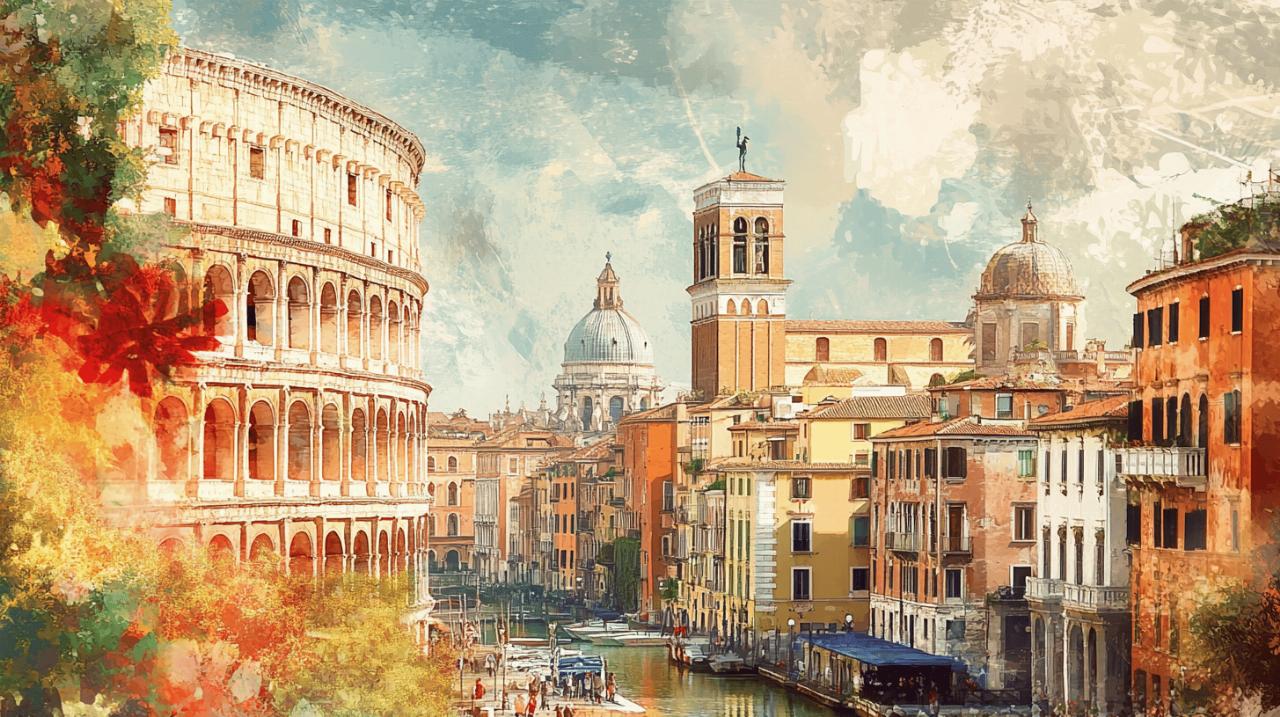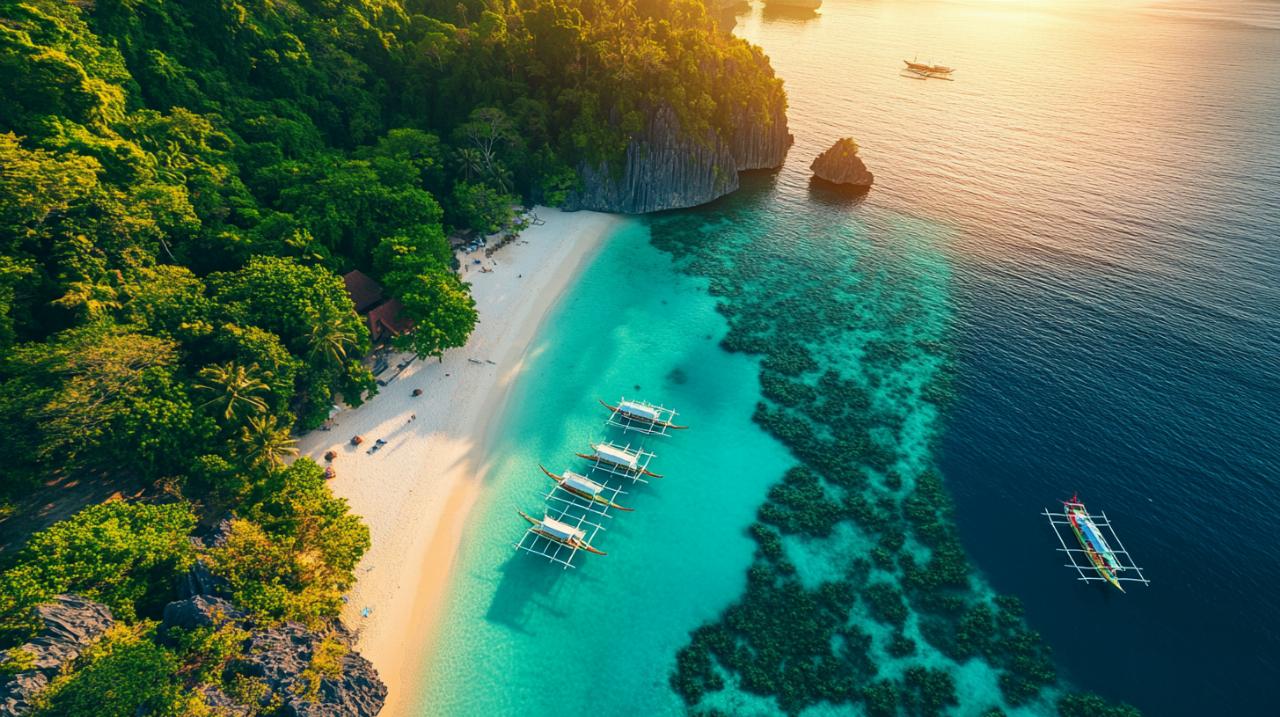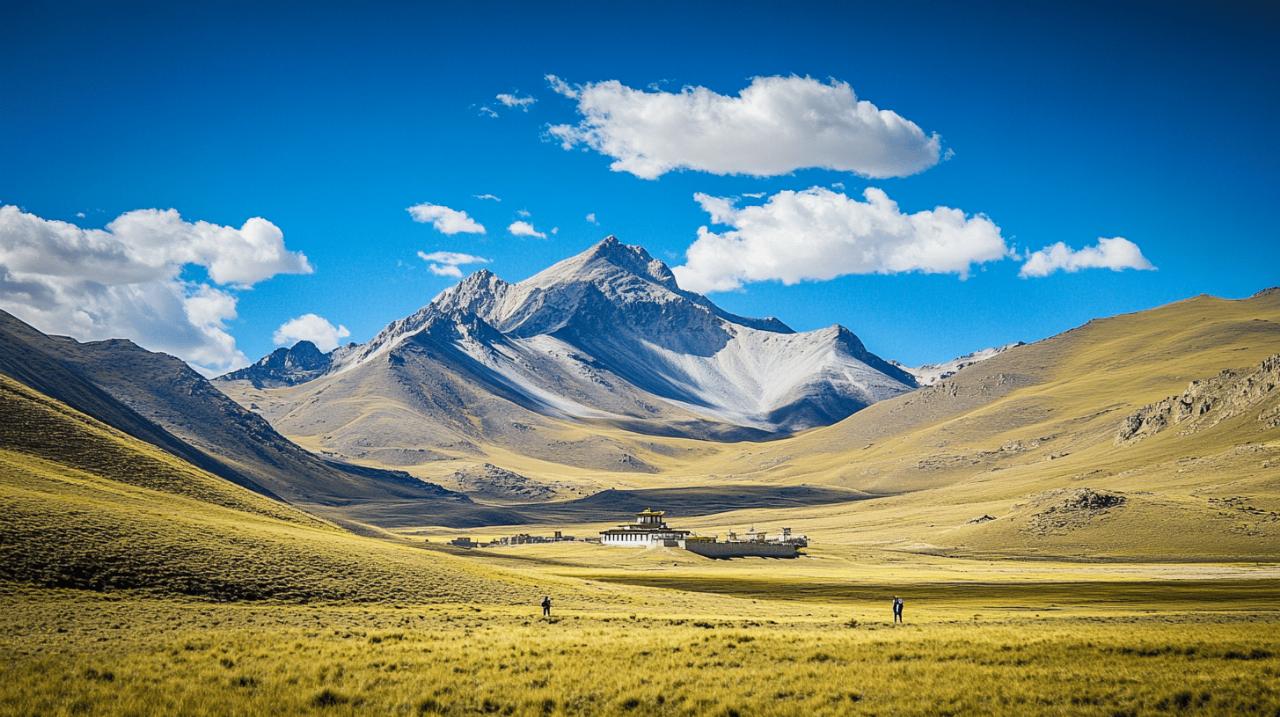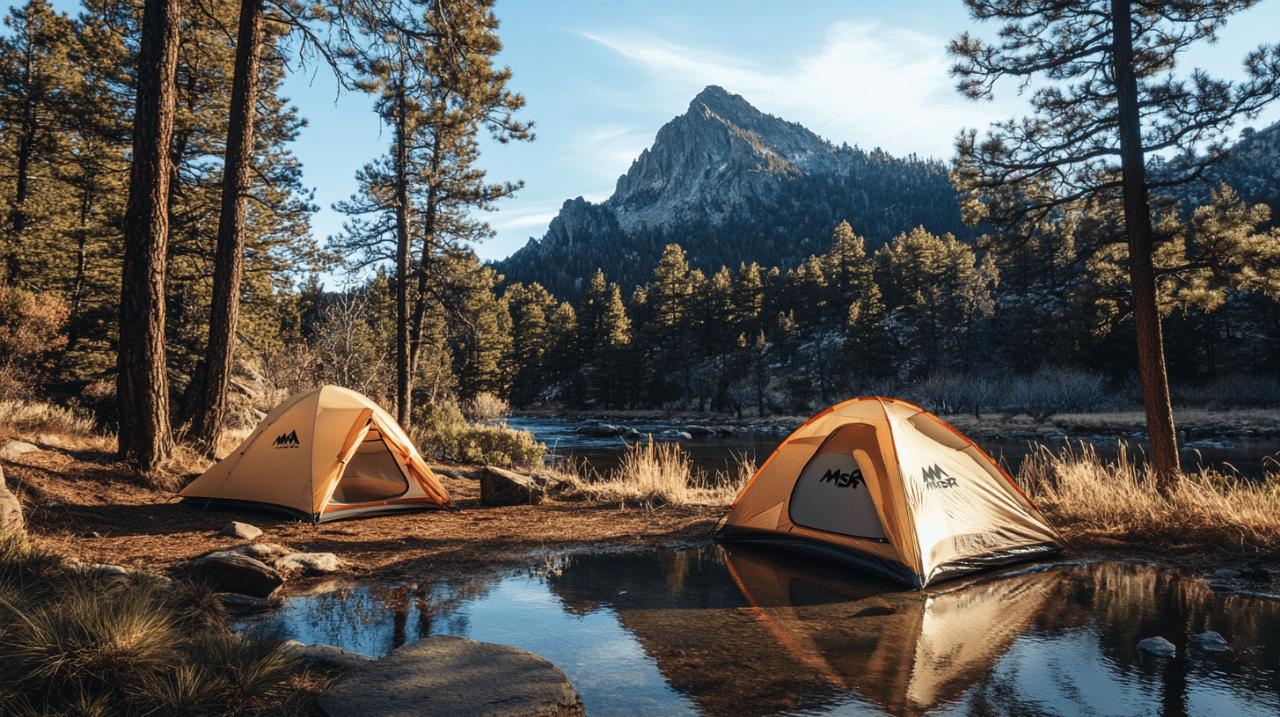Moving to Morocco as a French expat opens up a world of new experiences, but it also comes with its fair share of challenges, particularly when it comes to finding suitable accommodation. The Moroccan rental market has its own unique characteristics that can seem quite different from what you might be used to in France. Understanding these differences and knowing what to expect can make your transition to Moroccan life much smoother and more enjoyable.
Navigating the moroccan rental market
Finding the right place to live in Morocco requires a bit of local knowledge and preparation. The rental market can be quite diverse, with options ranging from traditional riads in the medinas to modern apartments in newly developed areas. However, navigating this market can be a bit of a faff for newcomers, particularly if you're not familiar with local practices and expectations.
Popular cities and price variations
Morocco offers several popular destinations for French expatriates, each with its own charm and cost considerations. Casablanca, the economic capital, tends to have higher rental prices, especially in upmarket areas like Anfa or Ain Diab. Marrakech, with its vibrant culture and international appeal, offers varied options from luxurious villas to more modest flats. Rabat, as the administrative capital, presents a more sedate lifestyle with relatively stable rental prices. These cities have seen significant development in recent years, leading to a wide range of accommodation styles and standards.
The variation in rental costs between these cities can be quite substantial. For instance, a three-bedroom apartment in a desirable area of Casablanca might cost twice as much as a similar property in Fes or Meknes. Understanding these regional differences is crucial when budgeting for your move to Morocco.
What french expats should know before renting
Before signing any rental agreement in Morocco, there are several key factors French expats should consider. Firstly, it's worth noting that most properties come unfurnished, which means you'll need to budget for furniture and appliances. Additionally, rental prices are often negotiable, so don't be afraid to haggle a bit. Another important consideration is that verbal agreements are common in Morocco, but it's always advisable to insist on a written contract to protect your interests.
Location will significantly impact both your quality of life and your expenses. Properties closer to French schools, international facilities, or in expatriate-friendly neighbourhoods typically command higher prices. However, they might offer conveniences that make the extra cost worthwhile, such as easier access to imported goods or French-speaking communities.
Understanding moroccan tenancy agreements
Tenancy agreements in Morocco can differ significantly from those in France, and understanding these differences is essential for a smooth rental experience. While the Moroccan rental market is becoming more regulated, practices can still vary widely depending on the region and type of property.
Deposits and Legal Rights for Foreign Tenants
When renting in Morocco, landlords typically request a security deposit equivalent to one to three months' rent. This deposit, often referred to as 'caution money', serves as protection for the landlord against potential damages or unpaid rent. Unlike in some European countries, there's no standard system for holding these deposits in escrow accounts, so recovery at the end of your tenancy may require careful negotiation.
Foreign tenants in Morocco generally have the same legal rights as Moroccan citizens when it comes to housing, but language barriers and unfamiliarity with local practices can sometimes lead to misunderstandings. It's advisable to have a Moroccan friend or a legal professional review your contract before signing. Some expats find that working with reputable estate agents who cater to the international community can provide an added layer of security, even if it comes with additional fees.
How residency status affects your rental options
Your residency status in Morocco can significantly influence your rental experience. Having a long-term residency permit, known as a 'carte de séjour', can make the rental process much smoother. Landlords often feel more secure renting to tenants with official residency status, and some may even offer more favourable terms. Additionally, certain administrative processes, such as connecting utilities or internet services, are considerably easier with proper residency documentation.
Without a residency permit, you might find some landlords reluctant to enter into formal agreements, or they might require larger deposits or advance payments. Some expatriates initially stay in short-term holiday lets while sorting out their residency status, which can be a practical interim solution, albeit usually more expensive in the long run.
Property investment opportunities in morocco
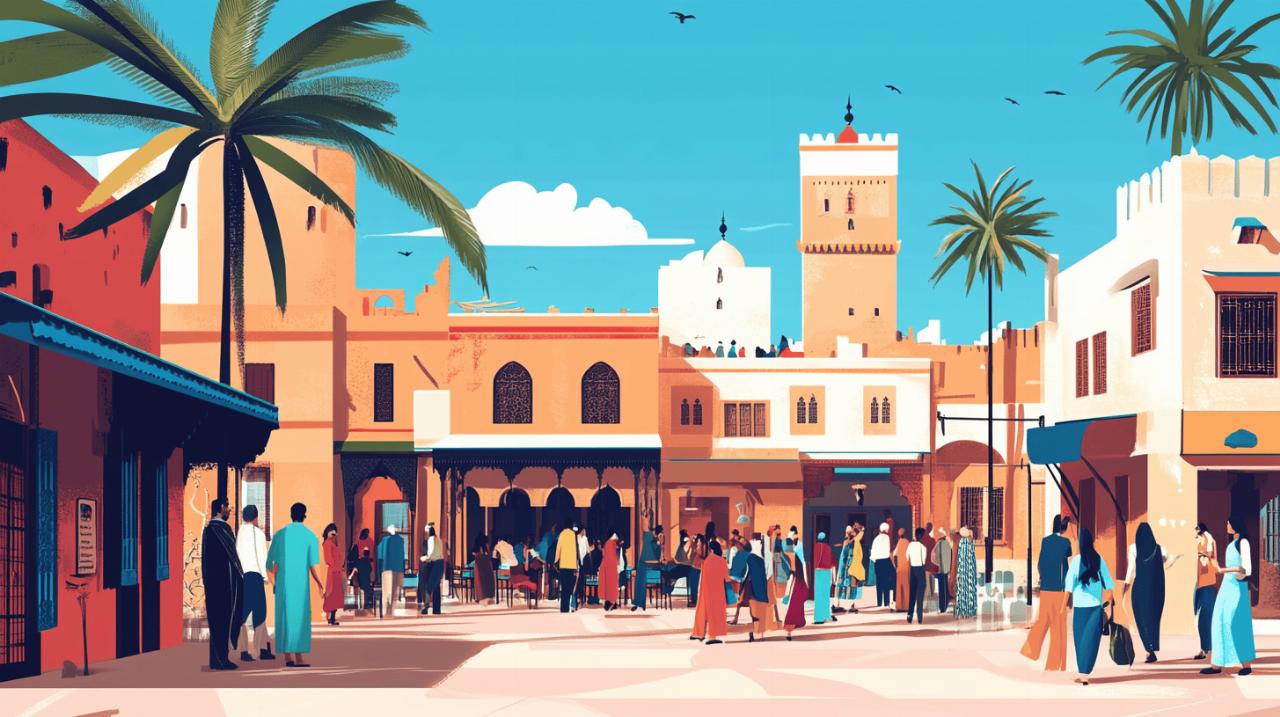 Beyond renting, many French expatriates consider property investment in Morocco. The country has been actively encouraging foreign investment in real estate, making it relatively straightforward for foreigners to purchase property compared to some other North African nations.
Beyond renting, many French expatriates consider property investment in Morocco. The country has been actively encouraging foreign investment in real estate, making it relatively straightforward for foreigners to purchase property compared to some other North African nations.
Local laws for foreign property owners
Morocco allows foreign nationals to purchase property with relatively few restrictions, though agricultural land is subject to different regulations. The process involves several steps, including obtaining a 'Certificat Négatif' which confirms the property isn't state-owned, having the sale deed drawn up by a notary, and registering the property with local authorities.
Tax considerations are important for French expats buying property in Morocco. While property taxes are generally lower than in France, there are still annual taxes to consider, including a residence tax and a municipal tax. Furthermore, understanding the implications for your tax residency status is crucial, as owning property in Morocco could affect your tax obligations in both countries.
Managing your moroccan investment property
If you're considering buying property as an investment rather than a primary residence, you'll need to think about property management. Morocco has seen growth in professional property management services, especially in tourist areas where holiday lettings can provide good returns. These services typically handle everything from finding tenants to maintenance and can be particularly valuable if you're not planning to live in Morocco year-round.
For those looking to generate income from their Moroccan property, understanding the local rental market is essential. Short-term holiday rentals in tourist hotspots like Marrakech can yield higher returns but require more active management. Long-term rentals to other expatriates or locals might offer more stability but potentially lower overall returns. Your choice will depend on your investment goals and how hands-on you want to be with your property.
Regional living cost comparisons
Living costs in Morocco vary significantly depending on location, and this extends beyond just rental prices. Understanding these regional differences can help you make informed decisions about where to settle based on your budget and lifestyle preferences.
Budgeting for Rent and Utilities in Different Cities
When budgeting for accommodation in Morocco, it's important to consider not just the base rent but also additional costs such as utilities. Electricity, water, and internet services can add significantly to your monthly expenses. In coastal cities like Casablanca and Tangier, you might find that utility costs are higher due to increased air conditioning use in summer or heating in winter.
Internet and mobile services are widely available throughout Morocco, though connection quality can vary. Major cities generally offer reliable high-speed connections suitable for remote working, while more rural areas might have more limited options. Budgeting around 500-1000 dirhams monthly for utilities and internet is a reasonable starting point, though this will vary based on your consumption habits and the size of your property.
Lesser-known areas worth considering
While Casablanca, Marrakech, and Rabat attract the majority of French expatriates, there are several lesser-known areas that offer excellent value and quality of life. Essaouira, with its laid-back coastal atmosphere and growing expatriate community, offers lower living costs than the major cities while still providing many amenities. Agadir, known for its year-round mild climate, has become increasingly popular with retirees and remote workers looking for a balanced lifestyle.
Inland cities like Fes and Meknes offer rich cultural experiences and significantly lower living costs. A comfortable apartment in these cities might cost half what you'd pay in Casablanca, leaving more room in your budget for exploring Morocco's diverse regions. These cities also tend to offer a more authentic Moroccan experience, which can be appealing to those looking to immerse themselves in the local culture rather than staying within expatriate bubbles.



